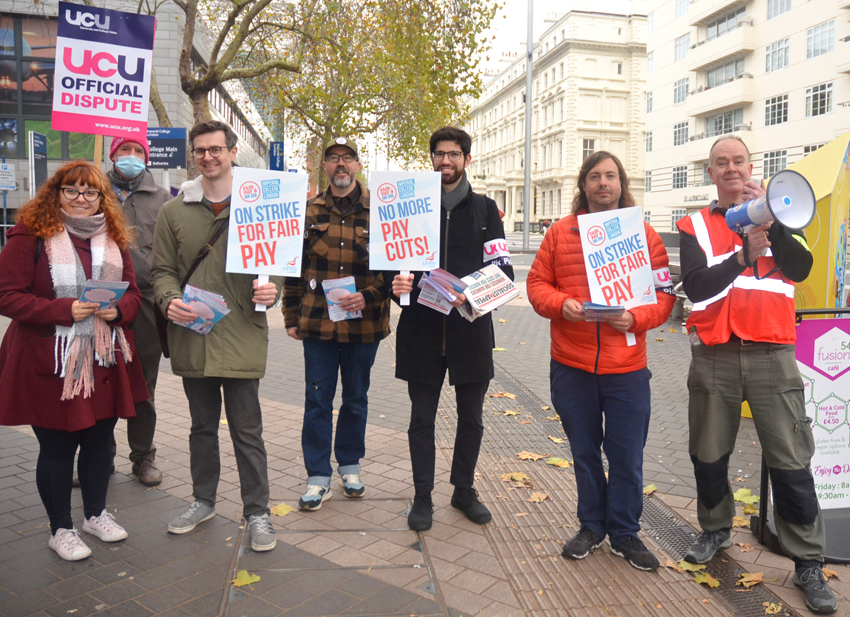
ENGLAND’S biggest-ever strike ballot is on the cards, confirmed the University and College Union (UCU) yesterday, after it entered into dispute with 88 English college employers over low pay and poor working conditions.
The dispute comes as the Department for Education announced colleges will receive an additional £185m in 23/24 and £285m in 24/25.
On BBC Breakfast this morning, Education Secretary, Gillian Keegan, said the funding is ‘equivalent’ to that provided to schools for the 6.5% teachers’ pay award.
UCU will launch a strike ballot in September if employers fail to meet the union’s demands. A successful ballot would pave the way for strikes this autumn at further education colleges across England.
The union is demanding a fair pay offer to help staff meet the cost-of-living crisis, a national workload agreement and binding national pay negotiations. Employer body the Association of Colleges (AoC) is now set to make a pay recommendation, having previously refused to do so.
College staff work an average of two days extra every week for no additional pay while salaries have fallen 35% behind RPI inflation over the past 12 years. The AoC directs colleges to pay their teachers as little as £26k, and the pay gap between school and college teachers is over £9k. The AoC admits that low pay has left colleges facing their worst recruitment crisis in two decades.
UCU general secretary Jo Grady said: ‘We are putting college employers on notice. Now that they have received this welcome funding increase from government, they need to come back to the table with a realistic pay offer. Any that refuses to do so will be part of England’s biggest-ever strike ballot come September.
‘Pay is too low and workloads are too high. Our members now need a new settlement, and it must include binding national negotiations in English further education that deal with these issues.’